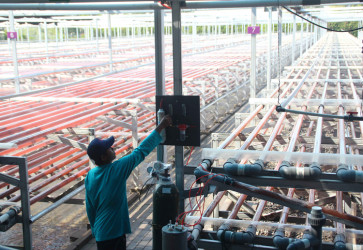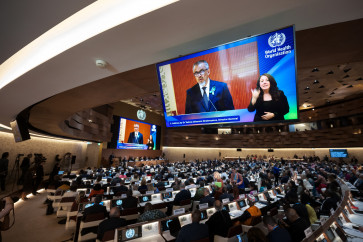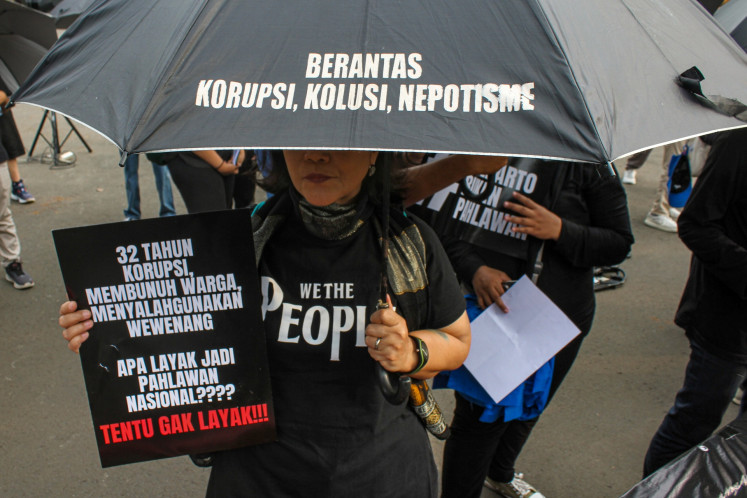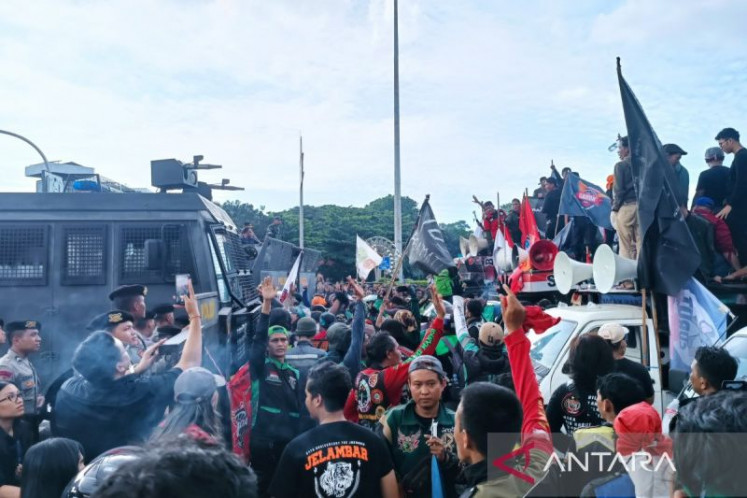Textile makers face weak sales, higher costs
Textile producers are urging the government to take swift action to help the industry survive amid weak sales and rising production costs, otherwise they may have to close their businesses or see more layoffs
Change text size
Gift Premium Articles
to Anyone

T
extile producers are urging the government to take swift action to help the industry survive amid weak sales and rising production costs, otherwise they may have to close their businesses or see more layoffs.
With an economic slowdown pressing people's purchasing power, the textile industry is facing flat growth with a number of companies already forced to dismiss workers, according to Indonesian Textile Association (API) chairman Ade Sudrajat.
Ade said his business group had filed a report with the Industry Ministry regarding the recent dismissal of tens of thousands of workers at textile factories across Java due to economic pressure.
'Based on our report given to the Industry Ministry, there are at least 6,000 textile factory workers who have been dismissed in four districts in Bandung regency between January and May,' Ade said on the sidelines of a textile exhibition in Jakarta on Wednesday.
The business group reported previously that 120 textile producers in Bandung regency, West Java, had laid off at least 6,300 workers and trimmed working time from seven days to just three days as a result of weak sales. Sales slumped by more than 40 percent in the January-April period from the past year.
Ade said rising costs, especially in electricity, had impacted the local textile industry, which also faced pressures from rupiah depreciation as half of its raw materials were imported.
Indonesia's economy decelerated to 4.71 percent year-on-year (yoy) in the first quarter, its slowest pace in nearly six years, partly due to lower domestic consumption, while recently the rupiah and stock prices weakened amid growing concern that the surge in inflation last month would further damage the country's economic outlook.
As the quickest solution to help the industry, Ade said the business group had requested that related ministries and state firms absorb production, pointing out that 'many textile companies in West Java produced sarongs, which are often in high demand during Ramadhan and Idul Fitri festivities'. The association was convinced that the Social Affairs Ministry would be able to absorb the products for various purposes, such as charities, Ade said.
According to Ade, West Java is the largest contributor to national textile production with 49 percent, while Jakarta and Banten contribute 16 percent, Central and East Java 14 percent each and the remaining 3 percent comes from other regions.
'In the medium term, the government should find a solution for how to decrease electricity costs, or else we cannot compete with imported products. We also hope that government spending, especially for infrastructure and villages, can be accelerated for disbursement,' Ade said.
Also on Wednesday, Industry Ministry director general for base manufacturing industries Harjanto said the ministry had requested a special coordination meeting with the Coordinating Economic Ministry and law enforcers to address problems suffered by the textile industry, including illegal clothing imports.









